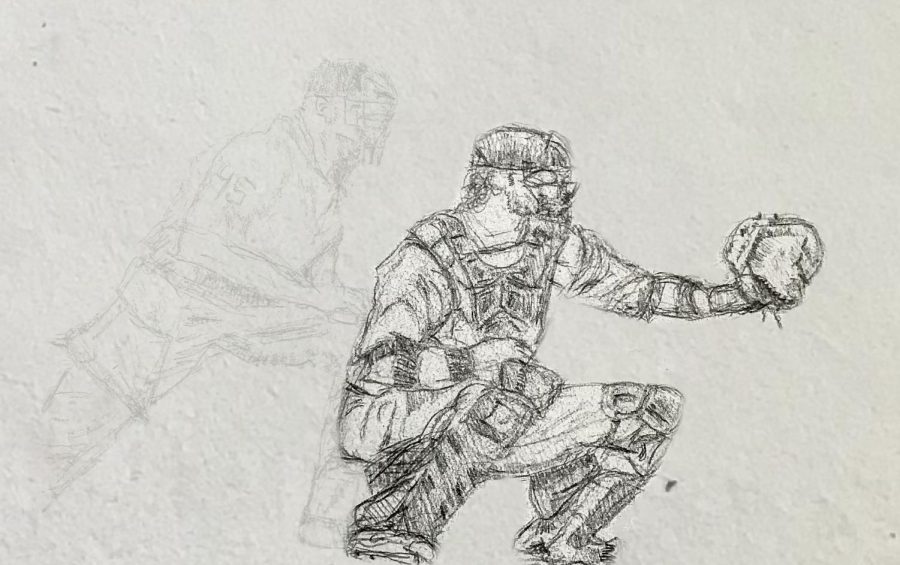The Guys Wearing Stripes
The job that has become few and far between.
High school officials are a dying breed in general, but umpires in particular are fading.
Even though high school sports officials are always needed, lately it has started to become a bit of a problem. MSHSAA is begging for officials in all sports, and games are becoming increasingly difficult to reschedule as a result of this shortage.
This problem started to get real about three to four years ago. It even to the point of schools, like Westminster, having a Thursday night football game because there weren’t enough crews for Friday and Saturday.
There are proposals and other ideas in place to keep officials in the game and bring new ones in, such as a higher payment per game, which is on the rise.
“It’s hard to pinpoint the problem, I think it’s a mixture of problems,” said Glen Adams of the Westminster athletic office.
Many organizations struggle to bring in new young officials because the pay simply does not justify the stress that these men and women often go through, so there is no incentive to join.
Additionally, the Covid pandemic hit many fields of work hard, causing unemployment rates to skyrocket. The majority of officials are older in age, so they are at a higher risk for the disease and do not get paid enough to risk exposure while doing their job.
The position of officiating a sport has always been a job that is not made for everyone, not only because of the skill and knowledge required, but also the stress that comes with it.
Speaking from experience, even officiating a little league baseball game can be stressful with nothing on the line. Then, you add feedback from coaches, players, parents, and spectators, and the stress multiplies and multiplies.
Many people have the attitude of “It’s their job, so you can treat them as you please.” Just as in any field of work, there are certainly officials who lower the standard by their poor example. However, because of these few, people are quick to criticize any and every referee, even the good ones, just because they can.
Officials know that they will receive criticism from parents, athletes, and coaches, but when lines of decency and respect are crossed, it’s just not worth the money anymore.
From someone who’s been on both sides, officiating and playing, I think the most embarrassing thing is when a coach, especially at the high school level, does not know how to interact with an official.
Good coaches know how to treat a referee as if they’ve been in their shoes, and some have been. They know how to interact in a way that gets their point across and makes the official think about it. When a coach respects the officials, the officials return the respect. Meaning, if that coach has a legitimate problem, they will take it into consideration.
On the other hand, the coaches who don’t know how to interact with officials always end up hurting their own cause. These coaches are the same ones who would blame officials for the outcome of a game.
In baseball, there is a common term called “2 strike hitting,” meaning approaching the plate in a way that protects the umpire from having a chance to ring you up on strike three. This idea is common in old-school baseball, but the reason behind the idea is what matters.
The idea is that you are making it harder on the umpire to call you out. No matter what you say, the umpire can call you when he wants. It’s the idea of playing the game with a mindset of not relying on the referee to call the game the way you see it. Just play the game and let them do their jobs. If coaches and players alike embody this idea, officiating might be enjoyable again.
In my third match at the wrestling state championship this year, I tied the match in the last seconds. The referee had an opportunity to make a call that would decide the match, sending one of us home. But, when we stepped back on the line, he leaned in and said something along the lines of, “You guys are deciding the match.” This stuck with me because that statement describes everything you could ever ask for in a referee: someone who knows their role in the competition. They know that the game is not about them and it’s about the athletes. So they call the game fair and try their best to let the athletes battle it out.
More officials than we give credit to likely hold this same attitude. They want the athletes to decide the outcome, not themselves. They are only there to make sure the game is being played fairly and in accordance with the rules. If we keep this in mind and learn how to interact with officials in the right way, this shortage may finally end.




